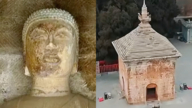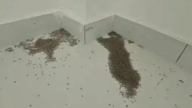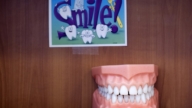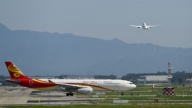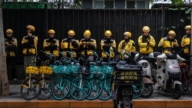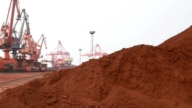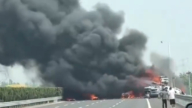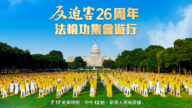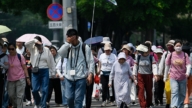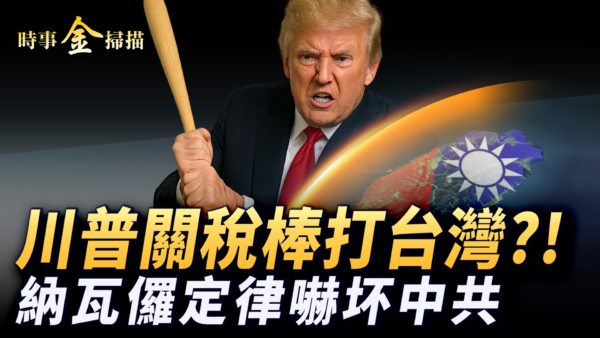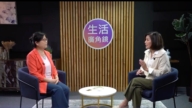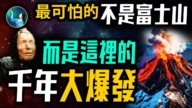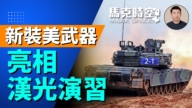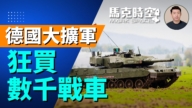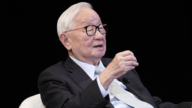【新唐人2014年09月08日讯】最近,中共频频使用《反垄断法》,对众多知名外资企业进行调查。在只能默默承受中共当局的突袭办公室、漫长的调查,以及高额罚款之后,有迹象显示在华外企打算联手反抗。继上个月“中国欧盟商会”发表声明,日前,“美中贸易全国委员会”也发布报告,质疑中共反垄断程序的正当性。
9月3号,代表200多家在华美商的“美中贸易全国委员会”(US-China Business Council) 发表报告指出,中共当局最近频繁以“反垄断”为由,不按正当程序,对在华外企施加压力。
报告说,中共反垄断执法机构逼迫被调查企业承认违法行为,但不出示相关证据,也不给这些企业就相关指控作出解释的机会,甚至不说明调查理由。
报告还说,一些企业透露,在执法人员对其办公室进行突访前,它们没有得到联系法律顾问的机会,而在后续可能开展的冗长谈判中,它们的律师也被排除在外。
原北京大学法律系讲师王天成:“这个委员会提出的这些要求,从法律的角度上来说,当然是正当的,中国政府要反垄断,它应该遵循正当的法律的程序,应该要有必要的证据,应该要有善意的程序听取解释,这是法治所要求的。”
据了解,到目前为止,至少30家外资企业受到中共的所谓“反垄断调查”。7月28号,美国电脑软件巨头“微软”在北京、上海等地的4个办事处,遭到中共国家工商总局突击调查。在此之前,中共发改委曾对世上最大手机芯片制造商“高通”发起反垄断调查,“高通”被指控滥用市场支配地位非法牟利。
8月4号,跨国汽车公司“奔驰”(Mercedes-Benz)位于上海的办事处,也遭到反垄断调查。而“克莱斯勒”(Chrysler)和“奥迪”(Audi)两家企业,已被查明存在垄断行为,其中一汽-大众奥迪的罚金初步定为18亿元人民币,如果18亿罚单成真,将创下中共反垄断罚金最高记录。
8月20号,中共发改委宣布,对12家日本汽车配件生产商,罚款12.4亿元人民币。
美中贸易全国委员会主席傅强恩(John Frisbie)指出,中共执法机构的正当程序、透明度,以及赔偿和罚款的裁定方法,都需要改善。
上个月,代表1800家欧洲在华企业的“中国欧盟商会”(European Union Chamber of Commerce in China)针对中共当局的反垄断调查发表声明说:“在未进行充分听证的前提下,有关部门通过带有恐吓性的行政手段迫使企业接受惩罚和治理,这类现象值得高度警惕。”
声明指出:“诸如告知企业不要对调查者提出质疑和挑战、不要在审讯环节雇佣律师或求助其政府、所属商会等行为,都与最佳讼程程序背道而驰。”
旅美中国社会问题研究人士张健:“外资企业在华受到一些优待之后,中共各地方政府也露出了狰狞的面孔,‘养肥了猪,就要杀了过年’用这种方式来对所有的外资企业进行整肃,而且以黑道的方式,不讲理的方式,公然践踏了法律,也践踏了反垄断法的公平、公开、公正的三公原则。”
据《路透社》8月21号报导,中共发改委官员徐新宇在近期一次会议上,向“通用电气”和“西门子”等约30家外企施压,要求他们坦白垄断行为,并警告他们不要聘请外部律师来对抗监管机构的指控。一名与会消息人士透露,徐新宇对在场企业说:“如果你想对抗,我可以将罚金翻一倍或两倍。”
《纽约时报》指出,外资企业通常缺少中国竞争对手所拥有的政治背景,一旦成为打击目标,往往会保持沉默。
王天成:“如果你去抗议,你可能会受到惩罚,会受到报复,所以他们就会忍气吞声。不过还好,毕竟是外企,有自己的国家,在自己的国家还有一些组织,就像刚才说的委员会,给它们发出声音。”
旅美中国社会问题研究人士张健指出,最应该被反垄断调查的,是中国所有的国有企业,那些遭到中共调查的外企,很有可能会联手,把中共这种不公平对待,以及违反法律程序的种种行径,告到国际法庭。
采访/易如 编辑/陈洁 后制/李勇
Foreign Companies Resist the CCP’s “Anti-Monopoly" Raids
Recently, the Chinese Communist Party (CCP) has used
Anti-Monopoly law to investigate a number of renowned
foreign companies.
After silent tolerance of the CCP’s surprise raids, lengthy
investigation and heavy fines, those foreign companies
finally made some resistance.
Following European Union Chamber of Commerce in China,
US-China Business Council also made a statement that
questions legitimacy of the CCP’s “Anti-Monopoly” moves.
On Sep. 3, US-China Business Council (USCBC), a group
on behalf of over 200 US companies in China, issued a report.
The report said the CCP had been pressing foreign
companies in the name of “Anti-Monopoly" without
due procedure.
According to the report, the CCP’s anti-monopoly organ
had forced companies to admit their illegal acts.
However, the officers did not show evidence or give
companies any chance to defend themselves.
The companies were not even told why they
were investigated.
The report also quoted sources that the companies were
not given any chance to contact legal counselors
before surprise raids.
In the following negotiation that could possibly be very
lengthy, their lawyers were also left out of the discussion.
Wang Tiancheng, former lecturer in law at Peking
University:"The Council’s demands are definitely legitimate.
The CCP should follow the right procedures to make
anti-monopoly investigations.
They should provide necessary evidence as well as
considerate hearing programs.
These things are demanded by the rule of law."
At least 30 foreign companies were reportedly subjected to
the CCP’s so-called “Anti-Monopoly" investigation.
On July 28, four Microsoft offices in Beijing or Shanghai
were abruptly raided by the State Administration
for Industry and Commerce.
Shortly before that, the CCP also investigated Qualcomm,
the biggest maker of smart phone chips,
on anti-monopoly charges.
The CCP claimed Qualcomm had made unlawful profits
by abusing its leading role in the market.
On Aug. 4, Mercedes-Benz’s agency in Shanghai was also
raided by anti-monopoly officers.
Chrysler and Audi were alleged by the CCP to violate
anti-monopoly law.
FAW’s Audi was preliminarily demanded a fine of
1.8 billion Yuan ($293M).
This would be the largest ever anti-monopoly fine
in China if it becomes true.
On Aug. 20, the CCP’s National Development and Reform
Commission (NDRC) also announced that 12 Japanese
makers of auto parts would be fined 1.24 billion Yuan ($200M).
John Frisbie, USCBC president, said the CCP needs to
improve its “due process, transparency and the
methodology for determining remedies and fines."
Last month, European Union Chamber of Commerce in China
also made a statement on the CCP’s Anti-Monopoly raids,
on behalf of 1800 European companies in China.
The statement said “numerous alarming anecdotal accounts
from a number of sectors that administrative intimidation
tactics are being used to impel companies to accept
punishments and remedies without full hearings."
The statement said “practices such as informing companies
not to challenge the investigations, bring lawyers to
hearings or involve their respective governments or
chambers of commerce are contrary to best practices."
Zhang Jian, scholar of China social affairs:"After giving
preferential treatment, the CCP’s local governments finally
revealed their ferocious faces.
They are crushing foreign companies like pigs that are well
fed for New Year’s feast.
When doing that, they acted like mafias, ignoring law
and the principles of anti-monopoly law which are fairness,
openness and justice."
Reuters reported on Aug. 21 that Xu Xinyu, an NDRC officer,
intimidated about 30 foreign companies like General
Electric and Siemens to admit their monopoly acts
in a recent meeting.
He also warned them not to resist by hiring lawyers.
A source at the meeting said, Xu told those companies
“I will double fine if anyone attempts to resist."
New York Times commented that, unlike their Chinese
competitors, most foreign companies do not have any
political background in China.
Therefore they usually stay silent even under
harsh crackdown.
Wang Tiancheng:"You may be punished or even retaliated
against if making any protests.
That’s why those companies submit to humiliation.
But after all foreign companies have native countries.
Organizations from their own countries can speak publicly
for them."
Zhang Jian said it is all the CCP’s state-owned companies
that should be subject to anti-monopoly investigation.
After being raided by the CCP, those foreign companies
may unite to appeal to international courts against
the CCP’s unfair treatment and violation of due procedure.
Interview/YiRu Edit/ChenJie Post-Production/LiYong


